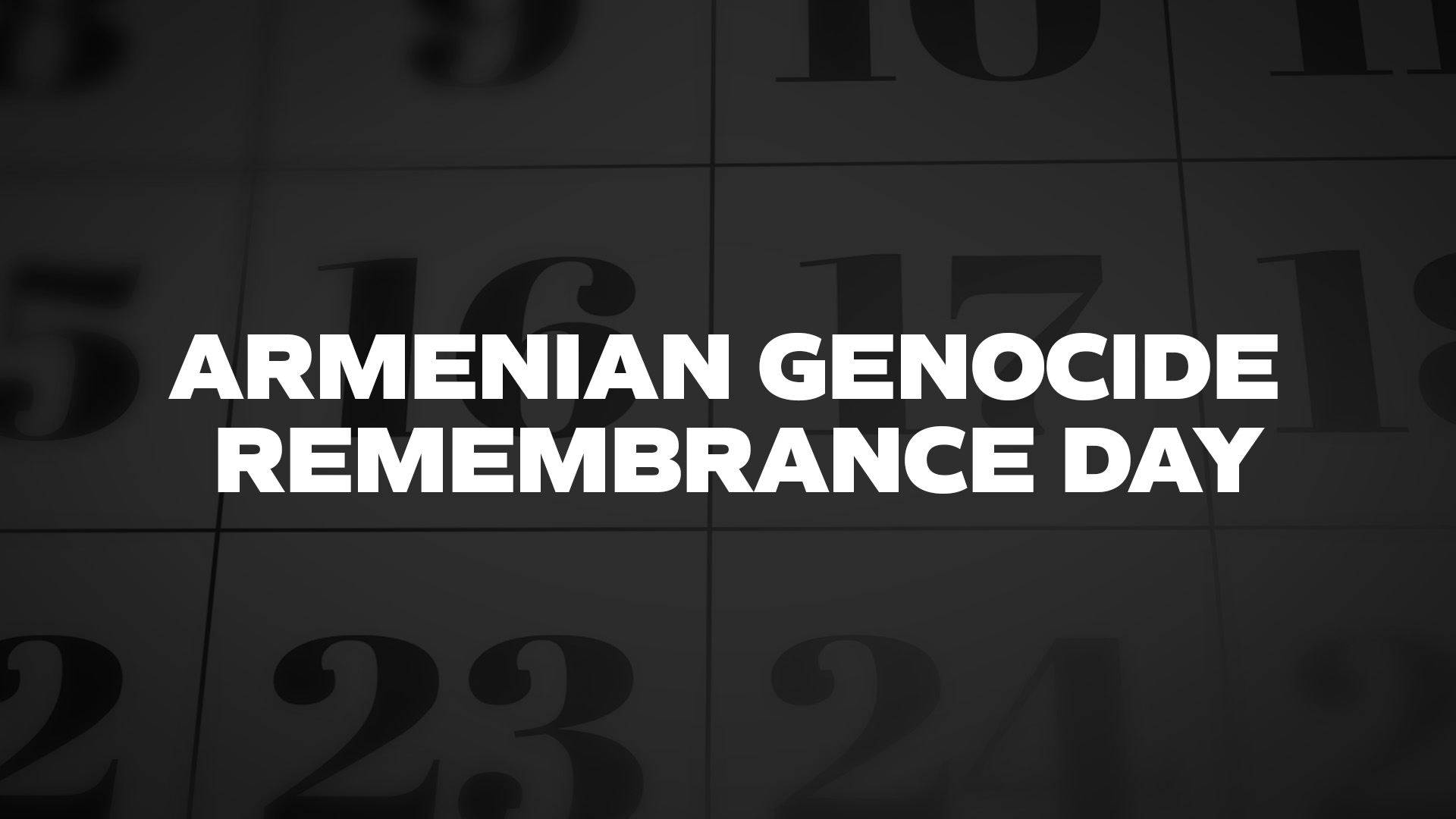Armenian Genocide Remembrance Day is an annual commemoration day observed on April 24th to remember the victims of the Armenian Genocide that occurred in 1915.
#HASHTAGS
#ArmenianGenocideRemembranceDay
Armenian Genocide Remembrance Day is celebrated annually on April 24th.
| Year | Date | Day |
|---|---|---|
| 2022 | April 24 | Sunday |
| 2023 | April 24 | Monday |
| 2024 | April 24 | Wednesday |
| 2025 | April 24 | Thursday |
| 2026 | April 24 | Friday |
| 2027 | April 24 | Saturday |
| 2028 | April 24 | Monday |
| 2029 | April 24 | Tuesday |
| 2030 | April 24 | Wednesday |
| 2031 | April 24 | Thursday |
| 2032 | April 24 | Saturday |
| 2033 | April 24 | Sunday |
| 2034 | April 24 | Monday |
| 2035 | April 24 | Tuesday |
